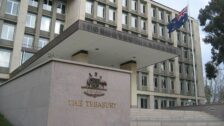Governments hurt pensions adequacy
Australia has slipped from third place in the world rankings for adequacy, sustainability and integrity of our super system to fourth place, being leap-frogged by new entrant Israel. The impact of COVID-19 has cost almost all systems, particularly those which allowed access to savings or relaxed contributions rules.
The Mercer CFA Institute 12th annual global study of world pension systems, published today (October 20), had two new entrants following changes by the OECD in the analysis of its data. The other was Belgium, which was ranked 16th.
The report ……. Download PDF ……. noted that some countries allowed temporary member access to their pension balances, such as Australia and Chile, or reduced compulsory contributions because of the pandemic. “These developments will likely have a material impact on the adequacy, sustainability and integrity of pension systems, thereby influencing the evolution of the Global Pension Index in the coming years,” according to Professor Deep Kapur of the Monash Centre for Financial Studies.
David Knox, Mercer senior partner and lead author of the study, said: “It is interesting to note that the top two retirement income systems in the Global Pension Index, the Netherlands and Denmark, have not permitted early access to pension assets, even though the assets of each pension system are more than 150 per cent of the country’s GDP.”
He also said: “Each of the three countries ranked above Australia – The Netherlands, Denmark and Israel – has a contribution rate into their funded pension arrangements of 12 per cent or higher… Unlike the means-tested age pension in Australia, they all have a universal state pension, which means, together with higher contribution rates, their replacement rates, as calculated by the OECD, are higher than Australia’s.”
The two new entrants took the total number of systems in the study to 39 (with China and Greater China, including Hong Kong, having two systems). They account for 64 per cent of the world’s population. Overall, ranking the three measured components of each system, the total average score was down ever-so-slightly, from 59.3 to 59.2. Australia’s total was down from 75.3 to 74.2 and New Zealand’s from 70.1 to 68.3.
Both of the top systems – The Netherlands and Denmark – increased their total index score despite COVID, as did Singapore and the UK, from lower bases. New Zealand suffered a slightly larger fall in its index average than Australia but hung on to its 10th place in the world rankings. What cost both countries most was a significant decline in adequacy (Australia down from 70.3 to 66.8 and New Zealand down 70.9 to 63.8). Both countries improved slightly their scores for sustainability and integrity.
David Knox said that the gap between men and women in terms of expected retirement savings is already an issue, and is expected to widen due to the impact of COVID. He said this gap would be most pronounced in the hardest hit sectors where women represented more than half of the workforce, such as hospitality and food services. He could have added health care, aged care, early child care and primary education.











